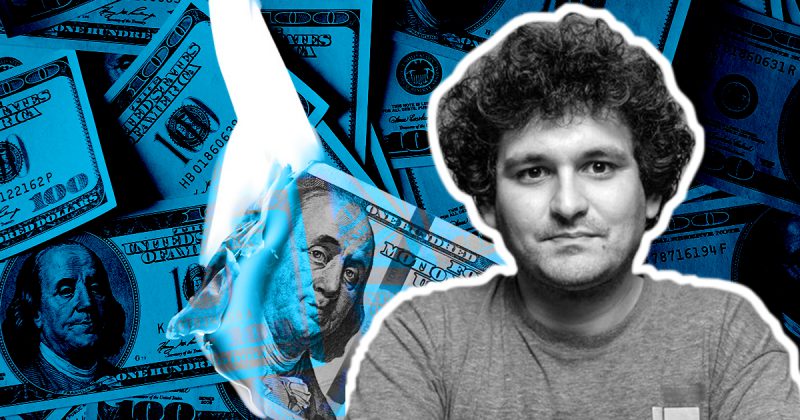Sam Bankman-Fried, the founder of the collapsed crypto exchange FTX was recently released on a $250 million bail bond. At the moment, Bankman-Fried is under house arrest and is staying in San Francisco with his parents. However, recent revelation suggests that Bankman-Fried allegedly cashed out $684,000 from a crypto exchange in Seychelles.
Also Read: FTX’s SBF Meets ‘Big Short’ Writer During House Arrest
Pseudonymous DeFi analyst and educator ‘BowTiedIguana’ recently joined all the on-chain dots and presented a compelling conjecture. The analyst explained that by cashing out such a significant amount, SBF has likely violated his release condition of not spending more than $1000 without permission from the court.
Delving Into The On-Chain Transfers
Notably, SBF’s public address sent all the Ethereum tokens to a newly created address. The analyst highlighted that SBF took over the address that was originally owned by an anonymous Sushiswap creator from Chef Nomi in August 2020.
Within hours, the newly created address received transfers summing up to $367,000 from 32 addresses identified as Alameda Research wallets. Furthermore, an additional $322,000 came from other wallets.
The said address also sent a total of 519.5 ETH worth $630k, to another address that also received funds from addresses labeled as Alameda Research. The analyst further revealed five more transactions involving less than 51 ETH [worth $61,000] that were used to move funds to newly created wallets.
BowTiedIguana noted that all funds were sent to a centralized crypto exchange in Seychelles and to the crypto bridge RenBridge. Furthermore, the SBF-linked wallet sent three parts of 200,000 Tether to the FixedFloat exchange.
Also Read: Bahamas Securities Regulator Holds FTX Assets Worth $3.5B
Asking regulators to look into the issue, the analyst said,
“As the Ethereum blockchain is an immutable public ledger, this on-chain evidence is permanently available to law enforcement and the courts.”
People from the crypto space, however, were quick to raise questions. For instance, a particular user opined,
“I don’t know that this necessarily qualifies as “spending” money. They’re his assets already (or he’ll argue that at least). The bigger question is whether those assets are part of the bankruptcy estate and not actually his assets personally.”





